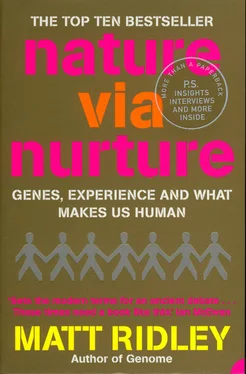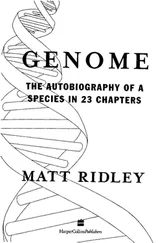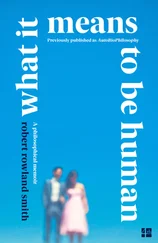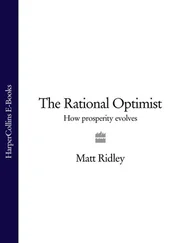I imagine a photograph taken in the year 1903. It is of a group of men gathered at some international meeting, in a fashionable spot like Baden-Baden or Biarritz, perhaps. ‘Men’ is not quite the right word, for though there are no women, there is one little boy, one baby and one ghost; the rest are middle-aged or elderly men, mostly rich and all white. There are 12 of them and, as befits the age, there is a great deal of facial hair. There are two Americans, two Austrians, two Britons, two Germans, one Dutchman, one Frenchman, one Russian and one Swiss.
It is, alas, an imaginary photograph, for most of them never met each other. But, like the famous group photograph of physicists at Solvay in 1927 – the one that includes Einstein and Bohr and Marie Curie and Planck and Schrödinger and Heisenberg and Dirac – my picture would capture that moment of ferment when a scientific endeavour throws up a host of new ideas. 5My 12 men were the ones who put together the chief theories of human nature that came to dominate the twentieth century.
The ghost that hovers overhead is Charles Darwin, dead for 21 years by the time of the photograph, and with the longest beard of all. Darwin’s idea is to seek the character of man in the behaviour of the ape and to demonstrate that there are universal features of human behaviour, like smiling. The elderly gent sitting bolt-upright on the far left is his cousin, Francis Galton, 81 years old but going strong; his whiskers hang down the sides of his face like white mice. Galton is the fervent champion of heredity. Next to him sits the American William James, 61, with a square, untidy beard. He is a champion of instinct and maintains that human beings have more impulses than other animals, not fewer. On Galton’s right is a botanist, out of place in a group concerned with human nature, and frowning unhappily behind his straggly beard. He is Hugo De Vries, 55, the Dutchman who discovered the laws of heredity only to realise he had been beaten to them more than 30 years before by a Moravian monk named Gregor Mendel. Beside him is the Russian, Ivan Pavlov, 54, his beard full and grey. He is a champion of empiricism, believing that the key to the human mind lies in the conditioned reflex. At his feet, uniquely clean-shaven, sits John Broadus Watson, who will turn Pavlov’s ideas into ‘behaviourism’ and famously claim to be able to alter personality at will merely by training. To Pavlov’s right stands the plump, bespectacled, moustachioed German, Emil Kraepelin, and the neatly bearded Viennese, Sigmund Freud, both 47 and both in the throes of influencing generations of psychiatrists away from ‘biological’ explanations and towards two very different notions of personal history. Beside him is the pioneer of sociology, the Frenchman Emile Durkheim, 45 and especially bushy in beard, busy insisting on the reality of social facts as more than the sum of their parts. His soulmate in this is standing next to him: a German-American (he had emigrated in 1885), the dashing Franz Boas, 45, with his drooping moustaches and duelling scar and his growing insistence that culture shapes human nature, not the other way round. The little boy in the front is the Swiss Jean Piaget, whose theories of imitation and learning will come to fruition, beardless, in mid-century. The baby in the pram is the Austrian Konrad Lorenz, who will revive the study of instinct and describe the vital concept of imprinting in the 1930s, while growing a fine white goatee.
I am not going to claim that these were necessarily the greatest students of human nature, nor that they were all equally brilliant. There are many, both dead and unborn, who would otherwise deserve inclusion in the photograph. David Hume and Immanuel Kant ought to be there, but they died too long ago (only Darwin manages to cheat death for the occasion); so should the modern theorists George Williams, William Hamilton and Noam Chomsky, but they were unborn. So should Jane Goodall, who discovered individuality in apes. So perhaps should some of the more perceptive novelists and playwrights.
But I am going to claim something rather surprising about these 12 men. They were right. Not right all the time, not even wholly right, and I do not mean morally right. They nearly all went too far in trumpeting their own ideas and criticising each other’s. One or two of them deliberately or accidentally give birth to grotesque perversions of ‘scientific’ policy that will haunt their reputations forever. But they were right in the sense that they all contributed an original idea with a germ of truth in it; they all placed a brick in the wall.
Human nature is indeed a combination of Darwin’s universals, Galton’s heredity, James’s instincts, De Vries’s genes, Pavlov’s reflexes, Watson’s associations, Kraepelin’s history, Freud’s formative experience, Boas’s culture, Durkheim’s division of labour, Piaget’s development and Lorenz’s imprinting. You can find all these things going on in the human mind. No account of human nature would be complete without them all.
But – and here is where I begin to tread new ground – it is entirely misleading to place these phenomena on a spectrum from nature to nurture, from genetic to environmental. Instead, to understand each and every one of them, you need to understand genes. It is genes that allow the human mind to learn, to remember, to imitate, to imprint, to absorb culture and to express instincts. Genes are not puppet masters, nor blueprints. Nor are they just the carriers of heredity. They are active during life; they switch each other on and off; they respond to the environment. They may direct the construction of the body and brain in the womb, but then they set about dismantling and rebuilding what they have made almost at once – in response to experience. They are both cause and consequence of our actions. Somehow the adherents of the ‘nurture’ side of the argument have scared themselves silly at the power and inevitability of genes, and missed the greatest lesson of all: the genes are on their side.
Конец ознакомительного фрагмента.
Текст предоставлен ООО «ЛитРес».
Прочитайте эту книгу целиком, купив полную легальную версию на ЛитРес.
Безопасно оплатить книгу можно банковской картой Visa, MasterCard, Maestro, со счета мобильного телефона, с платежного терминала, в салоне МТС или Связной, через PayPal, WebMoney, Яндекс.Деньги, QIWI Кошелек, бонусными картами или другим удобным Вам способом.












